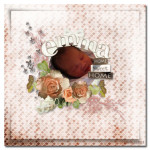
Since I had my first child, and thereafter since diving headfirst into the world of motherhood, parenting, childcare and of course breastfeeding, blogging about it all the way, if I might add, several blog readers and friends have told me that they are thankful for the tips and experiences I have shared. Some even said I had personally helped them in their breastfeeding journey, something which I am eternally thankful for.
Yes, I fully advocate breastfeeding and I blog about my personal struggles, challenges and experiences whilst breastfeeding, but if these can help someone else in whatever way, it has definitely made my efforts more worth the while.
However, I cannot remember formally sharing some personal breastfeeding tips which I keep; some things to remember as a mother embarks upon her breastfeeding journey, be it your first child or subsequent ones. It’s not an exhaustive list, but I hope that my own personal pointers will help someone along the way.
Read, Read, Read!
Prior to having baby, especially if it’s your first one, equip yourself with breastfeeding knowledge as much as you can. The internet is a wealth of information, so make sure you know all your facts. Good websites I always refer to are La Leche League International and KellyMom.
Make sure you have all your questions answered before baby arrives (or at least most of them), so you are sure about yourself in those first few days when everything is a blur.
For example, most new moms worry their baby is still hungry when baby cries and cries nonstop, or if their colostrum is enough to support the newborn since their milk has not come in. Resorting to formula milk is of course the easiest, no-fuss solution, but if you’ve read up on the topic, you will know that the newborn baby can survive for several days only on colostrum.
Breast Massage is Good for You
In the months leading up to your baby’s arrival, massaging the breasts to stimulate the milk ducts and glands have also proven to produce more milk when baby arrives.
It is believed that breast massage from the end of the second trimester towards the end of the pregnancy will prove to be advantageous for milk production.
Positive Reinforcement
Tell yourself “I can do it. I can and I will breastfeed my child for as long as I want.”
I’ve spoken to pregnant moms and when I asked them if they will be breastfeeding, some of them say, “If I can lorrrr….”, to which I reply, “Think positively. You definitely can.”
Thinking positively is one of the major factors in ensuring a successful breastfeeding journey. It helps pave the way as belief in yourself will take you far.
Rope in the Support Group
Let everyone who will be in close proximity to you know that you will be breastfeeding. Before the arrival of my firstborn, I had already informed my husband that I may likely throw in the towel, so I asked him to try to persuade me to carry on breastfeeding even though I was at my lowest.
I’m glad I did, because I remember it was very hard especially during the first few days. I was ready to give up but I persevered and tried my hardest, and I am so glad I did.
Stay-at-Home Moms and Working Moms CAN Breastfeed
If you’re a stay-at-home Mom, it would be advantageous if baby can latch on successfully and feed direct from the breast. For working moms, it doesn’t mean you have to wean the baby from the breast immediately. That initial suckling and stimulation from baby can help establish a strong milk supply.
Working moms can start building up their milk storage from the end of the first month onwards. I fully recommend tandem nursing (i.e. nursing baby on one breast and pumping milk from the other). It doesn’t matter if you only get 0.5oz . Just store the amount in the fridge and keep on storing, till you get a total of about 2-3oz, or equivalent to 1 feed. When the expressed milk are all chilled to the same temperature, pour them all into one storage container or bag and freeze it. Expressed breast milk can be stored in the fridge (chiller section) for up to 24 hours, and in the freezer for up to 3 months (Some moms have also used frozen milk up to 6 months).
Not Knowing is OKAY
In the early days (and even months), I’ve always had people asking me how much my child drinks. It could be pressuring for new mothers, but let me tell you this. It is OKAY to NOT KNOW. If you breastfeed direct exclusively, there is no way of knowing how much exactly your baby drinks, unless you have indicator marks on your breasts and your breasts are transparent!
So it’s okay to just feed on demand, provided baby has sufficient wet nappies and poops well. Well another thing to not worry about for exclusively breastfed babies is that the pooping schedule does not need to be regular. Some poop every day, some do it a few times a day and some only several times a week.
You will only need to be vigilant about the poop schedule once other foods are introduced at about 6 months’ old.
No Water Needed
Contrary to popular olden belief, a baby does NOT need additional water to supplement his diet IF the baby is exclusively fed on breastmilk At times, you may notice your baby’s lips slightly dry but that’s okay, just apply a little breast milk on the lips if you want, and it will heal on its own.
Supplementing a baby’s diet with water, especially a newborn’s, may sometimes interfere with the breastfeeding process. The baby might feel full from the water fed, and hence refuse to feed on breast milk which in turn will reduce breast stimulation and then will reduce breast milk production.
**********
I hope I have helped allayed some concerns on breastfeeding with the explanations above. Please let me know if you have additional queries and I’ll try to answer them from my personal experience or try to find some answers from experts.





 Little Miracles
Little Miracles Our Journey of Love
Our Journey of Love